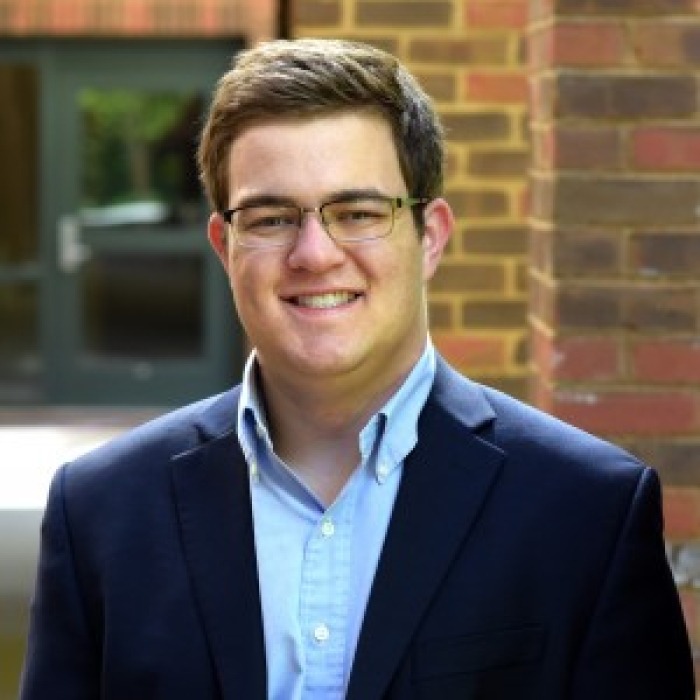
Benjamin Helms
PhD Candidate, University of Virginia
Date and Time:
Friday, September 17, 2021 12:15 PM to 1:30 PM
Abstract/Description:
Ben Helms presented a dissertation chapter that investigates whether globalization fuels nativist politics in emerging economies. He argues that global economic integration can contribute to nativist movements even when its economic impacts are positive. These nativist movements are caused by geographic labor mobility towards production clusters where the effects of liberalization are most prominent, and which promise economic opportunities to migrants. Helms asserts that this fuels anti-migrant movements where internal migration is politically contentious. He adopted a difference-in-difference research design to estimate the independent variable – the effects of exposure to the Multi-Fiber Trade Arrangement (elimination of quotas) in the textile and apparel sector in India between 1999 and 2010. Instances of reported riots in a given district each year are used to measure the dependent variable – nativist sentiment. Helms’ research has implications on how labor reacts to globalization in emerging economies.
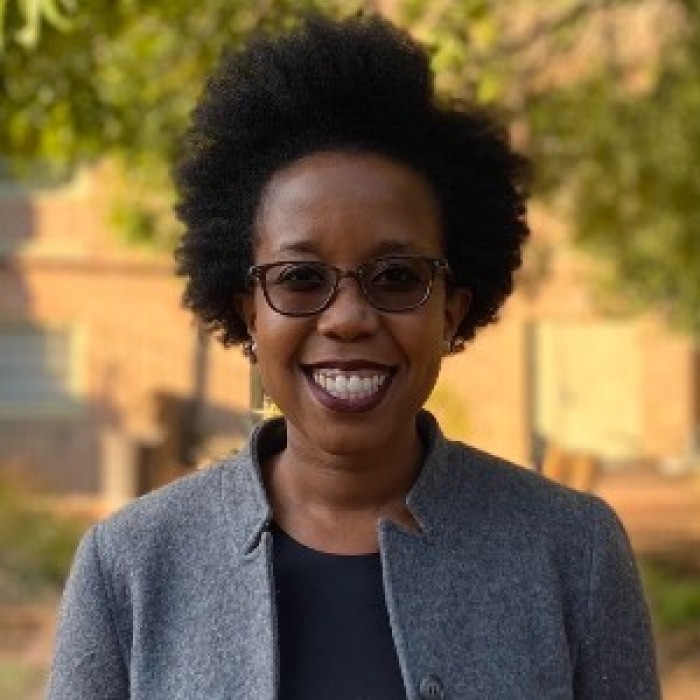
Kelebogile Zvobgo
Assistant Professor, College of William & Mary
Date and Time:
Friday, September 24, 2021 12:15 PM to 1:30 PM
Abstract/Description:
Kelebogile Zvobgo presented a working paper co-authored with Alan J. Simmons which investigates whether Americans support war crimes investigations and prosecutions. Their hypotheses suggest that public exposure to human rights frames will increase support for war crimes investigations and prosecutions heralded by the International Criminal Court (ICC). Meanwhile, exposure to human national interest frames will reduce support for war crimes investigations and prosecutions and opinion will favor US courts to lead investigations and prosecutions as opposed to the ICC. A survey experiment including 1000 American adults was carried out with groups being exposed to national interest, human rights, and common frames. The authors found that Americans are generally insensitive to arguments for and against accountability for U.S. personnel at a range of venues, including the ICC and U.S. domestic courts. Their paper emphasizes the factors that drive support or opposition for accountability for atrocity crimes, which is vital for both the outcomes of conflicts and seeking justice.
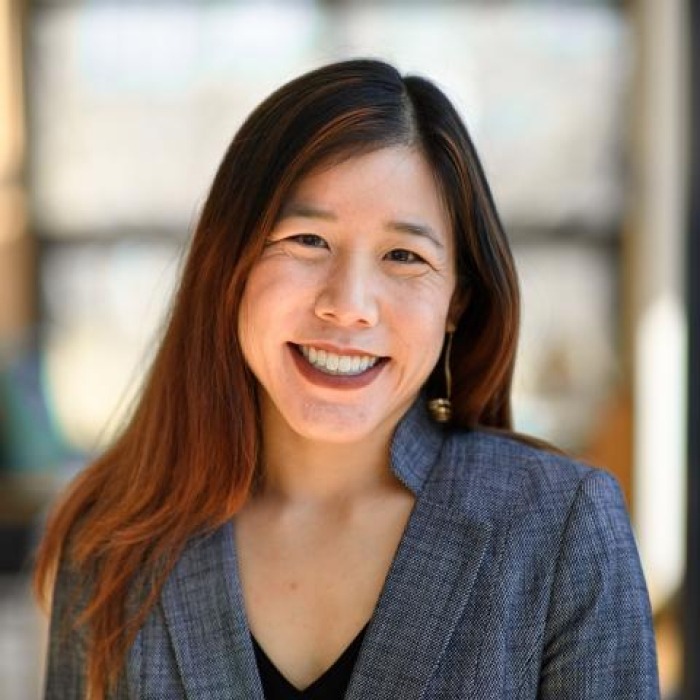
Melissa Lee
Assistant Professor, Princeton University
Date and Time:
Friday, October 8, 2021 12:15 PM to 1:30 PM
Abstract/Description:
Melissa Lee presented a co-authored paper with Nan Zhang and Tilmann Herchenroder which investigates how war shapes the popular imagination of national sovereignty. Lee investigates two competing visions of sovereignty culminated in violence during the American Civil War. The first vision states that wars are expensive in terms of blood and treasure and leaders sacrifice through ideological appeals when they fight (valence) while the second vision argues that wars are disruptive and prompt ideological fervor causing ideological entrepreneurs to promote their visions of national sovereignty. Drawing on an analysis of the grammatical shift in the “United States” from a plural to a singular noun as an indicator of how sovereignty is imagined newspapers between 1800–1899 and all Congressional speeches between 1851–1899, the authors find that war shapes the popular imagination of sovereignty only for winning partisans. Their work identifies a broader mismatch between institutional and ideational foundations of national sovereignty through an extensive linguistic analysis.

Joshua Kertzer
Professor, Harvard University
Date and Time:
Friday, October 15, 2021 12:15 PM to 1:30 PM
Abstract/Description:
Joshua Kertzer presented a paper which investigates whether advisers systematically affect foreign policy behavior. Kertzer moves beyond the existing emphasis on individual leaders and their psychological predispositions that shape foreign policy outcomes. His approach helps to explain group based decision making based on individual predisposition. Kertzer argues that foreign policy decisions made by leaders are based on the inputs they receive from their advisers. These inputs emanate from the advisers’ hawkish or dovish predispositions. Thus, the more hawkish the cohort of advisers are, the more likely foreign policy decisions made by their leader will result in conflict. Drawing upon extensive archival work from 700,000 National Security Council documents between 1947-1988 to produce 2881 records of formal and informal meetings categorized into speech acts, substantive decisions, and actor background, Kertzer concludes predispositions vary between advisers even within the same administration. His work is significant for three reasons. First, it demonstrates that advisers are influential in foreign policy decision making even though in the extant literature they are overshadowed by influential leaders. Second, it argues that group level decision making can be explained through individual level dispositions. Third, it makes use of computational archival analysis to answer longstanding questions in IR.

Olyvia Christley
PhD Candidate, University of Virginia
Date and Time:
Friday, October 22, 2021 12:15 PM to 1:30 PM
Abstract/Description:
Olyvia Christley presented a part of her dissertation project that investigates the relationship between the traditional gender attitudes and support for radical right parties. She argues that support for and the appeal of radical right parties is enmeshed with the gendered logic of masculine protection and feminine vulnerability. Christley finds evidence to support the notion that highly gendered traditionals are more likely to both select radical right parties and find their platforms appealing over mainstream conservative parties as compared to those who harbor egalitarian gender values. Her work has broader implications for being a common denominator of radical right support.

Volha Charnysh
Assistant Professor, MIT
Date and Time:
Friday, October 29, 2021 12:15 PM to 1:30 PM
Abstract/Description:
Vohla Charnysh presented the introductory chapter of her book project titled on migration, diversity, and economic development. Specifically, she investigates how post-WWII transfers remade Europe. In 1944-51, nearly 20 million people, including 12 million Germans and 5 million Poles, were uprooted from their homes and resettled elsewhere. She argues that this redistribution of population profoundly diversified societies within states. Migrants coming from different regions, espousing different religious beliefs, and speaking different dialects suddenly shared close quarters with one another. Her book seeks to explore how they learned to live together and why some uprooted populations are economically better off than others today. Using hand-collected archival and census data from Poland and Germany, Charnysh shows that communities diversified by forced migration initially struggled to cooperate and provide public goods, as individuals coming from different regions viewed each other with suspicion and distrust. At the same time, forced migration shored up the role of formal state institutions in the provision of public goods and welfare in the long run. Charnysh further argues that with time, communities that received a larger and more heterogeneous migrant population reached higher entrepreneurship rates and personal incomes.

Vipin Narang
Professor, MIT
Date and Time:
Friday, November 19, 2021 12:15 PM to 1:30 PM
Abstract/Description:
Vipin Narang’s research interests include nuclear proliferation and strategy, North Korea's nuclear weapons, South Asian security, and general security studies. His first book Nuclear Strategy in the Modern Era (Princeton University Press, 2014) on the deterrence strategies of regional nuclear powers won the 2015 ISA International Security Studies Section Best Book Award. His second book Seeking the Bomb: Strategies of Nuclear Proliferation is forthcoming with Princeton University Press.

Pavi Suryanarayan
Assistant Professor, Johns Hopkins University
Date and Time:
Friday, December 3, 2021 12:15 PM to 1:30 PM
Abstract/Description:
Suryanarayan argues that political elites may weaken bureaucratic capacity in anticipation of future redistribution. One such instance occurred in the Colonial Indian provinces, where incumbent elites hollowed out tax capacity in anticipation of franchise expansion. While studies of intra-elite competition have focused on economic inequality as a key factor in shaping elite motivations, she finds that high-caste elites in the colonial era, who were worried about their status dominance, weakened institutions in order to limit the ability of future elected lower castes to integrate public goods to lower castes. As elite bureaucrats as well as local tax collectors, upper castes enabled tax avoidance and exited the local bureaucratic machinery. Using a historical dataset from 1914-1925 and novel micro-level measures of land tax collection, tax avoidance, and the size of the bureaucracy, she demonstrates that bureaucratic capacity declined after franchise expansion in the districts with higher levels of inter-caste status inequality and where threats of political ascendance of lower castes were greater.
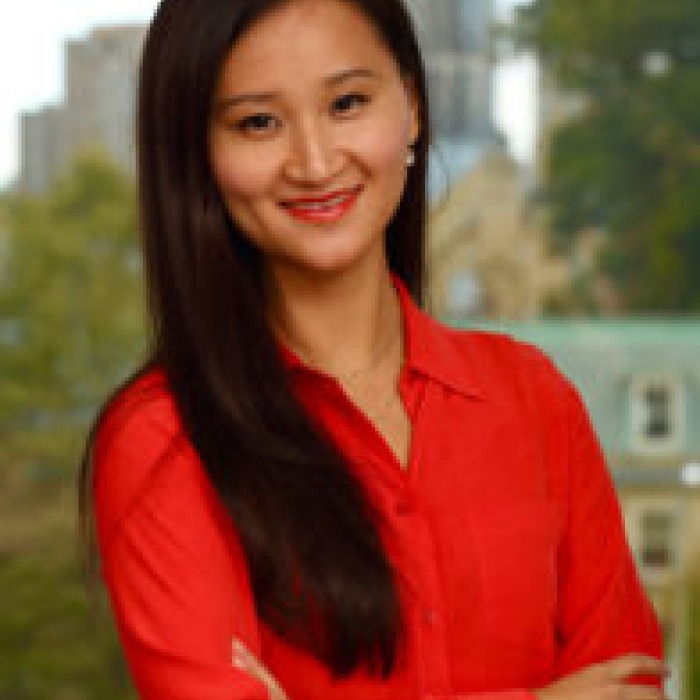
Diana Fu
Associate Professor, University of Toronto
Date and Time:
Friday, February 4, 2022 11:30 AM to 1:30 PM
Abstract/Description:
Diana Fu’s research examines popular contention, state control, civil society, and authoritarian citizenship, with a focus on contemporary China.
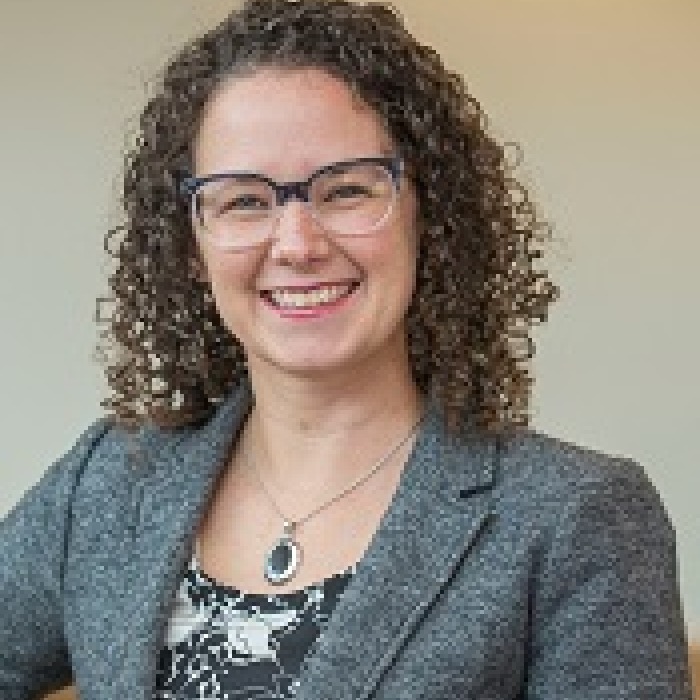
Emily Ritter
Associate Professor, Vanderbilt University
Date and Time:
Friday, February 11, 2022 11:30 AM to 1:30 PM
Abstract/Description:
Emily Ritter’s research centers on the effects of international legal institutions on the strategic relationship between government repression and dissent activities, with particular attention to the methodological implications for causal inference that stem from strategic conflict behavior. Her work includes international human rights institutions, law, and practice; domestic conflict between national governments and groups from the population; international governance and legal institutions; institutional solutions to bargaining and cooperation problems, and political methodology.
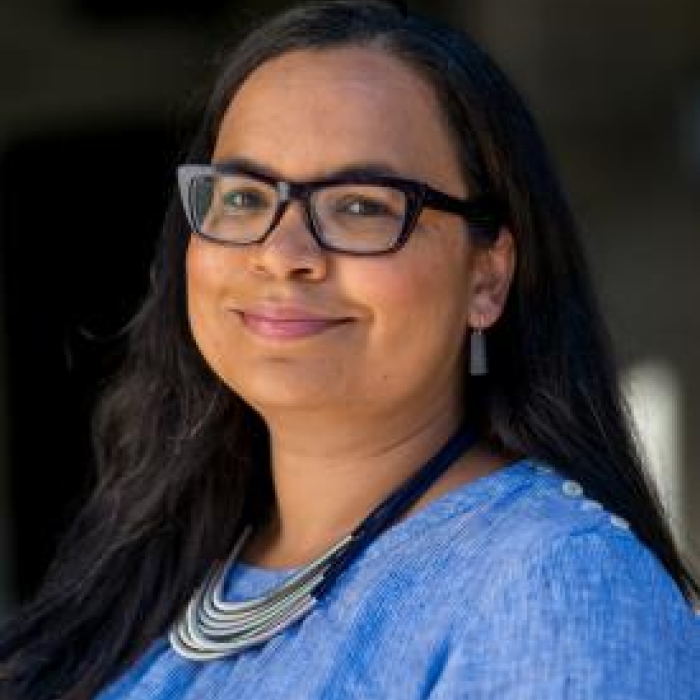
Erica Dobbs
Assistant Professor, Pomona College
Date and Time:
Friday, February 18, 2022 11:30 AM to 1:30 PM
Abstract/Description:
Erica Dobbs’ research explores the shifting dynamics of citizenship and political membership in a world of mass migration. Her work focuses on two spheres: political representation and social protection. Related scholarship also focuses on immigrant political mobilization into electoral politics.
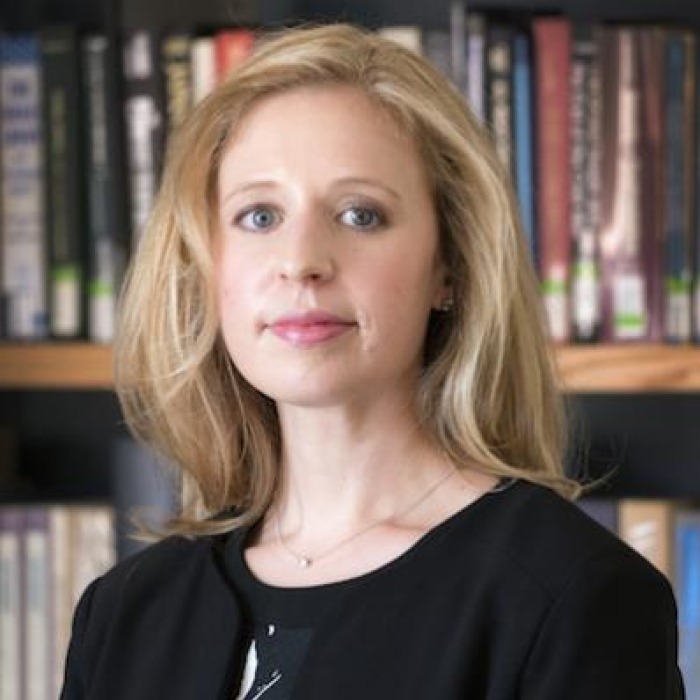
Rachel Whitlark
Assistant Professor, Georgia Tech
Date and Time:
Friday, February 25, 2022 11:30 AM to 1:30 PM
Abstract/Description:
Rachel Whitlark’s interests lie within international security and foreign-policy decision-making, specifically including nuclear proliferation, counter-proliferation, and military intervention. Her work investigates the role of the individual executive in foreign and security policy. Her book manuscript explores the use of preventive military force as a counter-proliferation strategy against adversarial nuclear programs and relies on archival research techniques. Additional projects examine nuclear latency, the provision of global public goods, and presidential beliefs about nuclear coercion

Vipin Narang
Professor, MIT
Date and Time:
Friday, March 4, 2022 11:30 AM to 1:30 PM
Abstract/Description:
Vipin Narang’s research interests include nuclear proliferation and strategy, North Korea's nuclear weapons, South Asian security, and general security studies. His first book Nuclear Strategy in the Modern Era (Princeton University Press, 2014) on the deterrence strategies of regional nuclear powers won the 2015 ISA International Security Studies Section Best Book Award. His second book Seeking the Bomb: Strategies of Nuclear Proliferation is forthcoming with Princeton University Press.
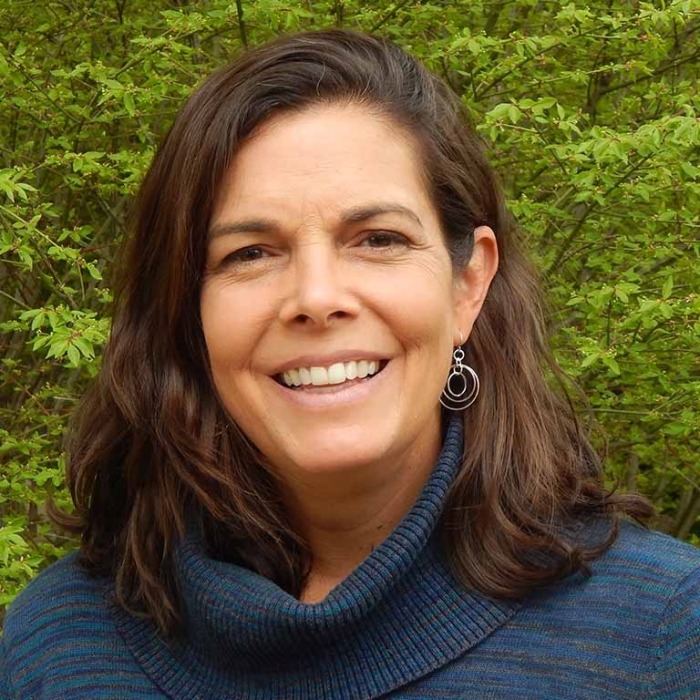
Lauren MacLean
Professor, Indiana University Bloomington
Date and Time:
Friday, March 25, 2022 11:30 AM to 1:30 PM
Abstract/Description:
Lauren MacLean’s research interests are comparative political economy and public policy, with a focus on the politics of state formation, public service provision, and citizenship in Africa and the U.S. In her first book, MacLean theorizes that divergent histories of state formation help explain variation in informal institutions and everyday practices of citizenship in two similar cross-border regions of Ghana and Cote d’Ivoire. Most recently, MacLean is investigating the politics of public service provision in the electricity sector in Africa. She was selected as a 2017 Carnegie Fellow to investigate how electricity provision may promote democracy and environmental sustainability in Ghana.

Janice Gallagher
Assistant Professor, Rutgers University-Newark
Date and Time:
Friday, April 22, 2022 11:30 AM to 1:30 PM
Abstract/Description:
Janice Gallagher’s research focuses on state-civil society relations, specifically how informal institutions, relationships and mobilization shape judicial and human rights outcomes.
Academic Year:
